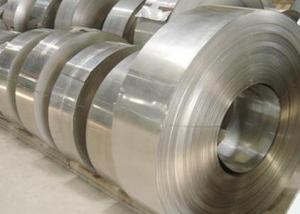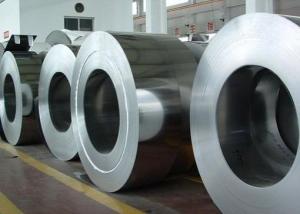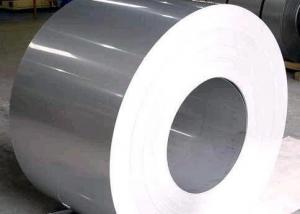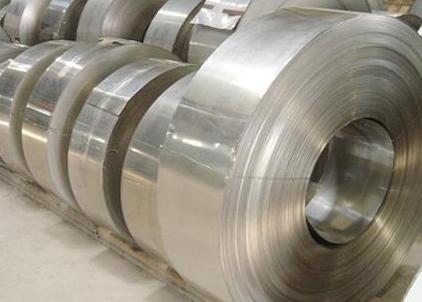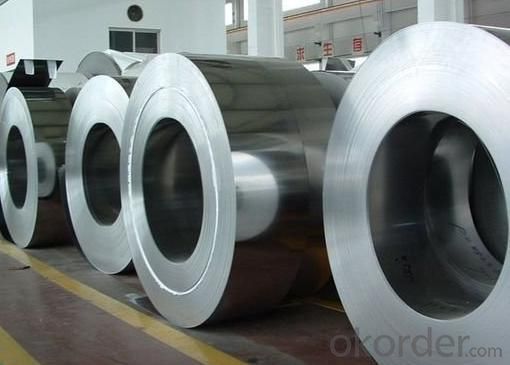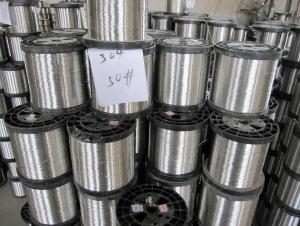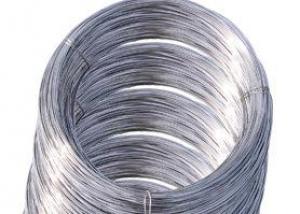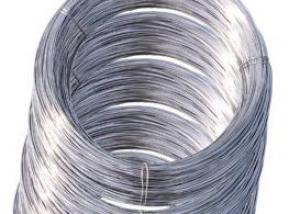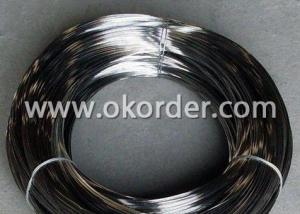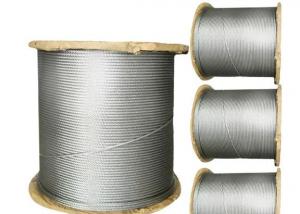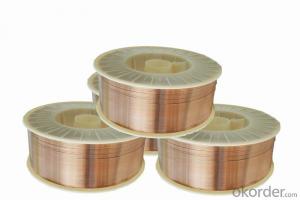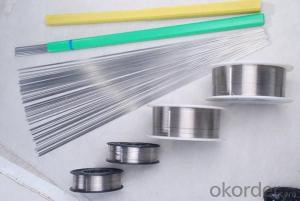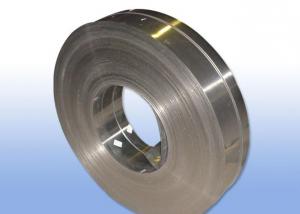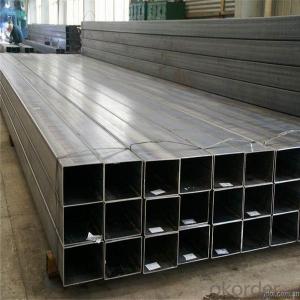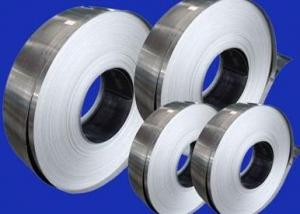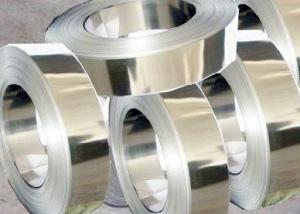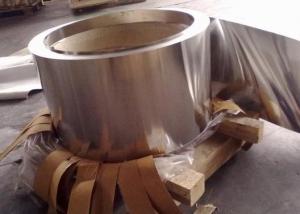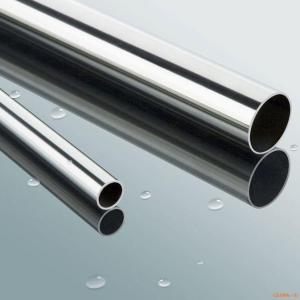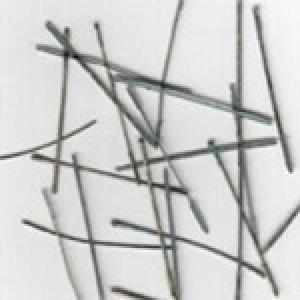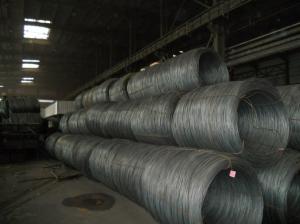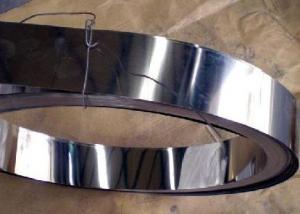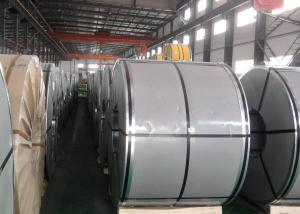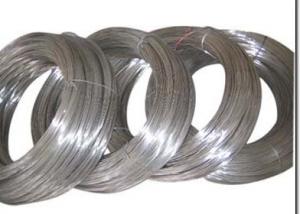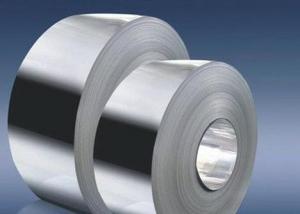SUS304 Stainless Steel Strips
- Loading Port:
- China Main Port
- Payment Terms:
- TT or LC
- Min Order Qty:
- 1 Ton m.t.
- Supply Capability:
- 2000 Tons Per Month m.t./month
OKorder Service Pledge
OKorder Financial Service
You Might Also Like
SUS304 Stainless Steel Strips
1. Chemical composition
|
C |
Si |
Mn |
P |
S |
Ni |
Cr |
|
max0.08 |
max1.00 |
max2.00 |
max0.045 |
max0.03 |
8.00-10.50 |
18.00-20.00 |
2. Mechanical properties
|
Yield Strength |
Tensile |
Elongation |
Hardness (HV) |
Hardness (HRB) |
|
≥ 205 |
≥ 520 |
≥ 40 |
≤ 200 |
≤ 90 |
3. Standard: AISI, ASTM, GB, EN, DIN, JIS
4. Surface: 2B, NO.1, BA, NO.4, Hairline, SB, Mirror finish, Anti-skid, Cherkered etc.
5. Size: Thickness: 0.3-3mm (cold rolled), 3-40mm (hot rolled)
Width: 1000mm or 1219mm or 1240mm for cold rolled, 1500mm for hot rolled.
Length: As customers' request.
6. MOQ: 1 Ton
7. Payment terms: T/T or L/C
8. Packing: Seaworthy package with wooden or Iron pallets with the paper and the steel strip, or as customers' request.
9. Delivery time: Usually about 7 days after we confirming the order, or according to your quantity.
If you have any demand, pls feel free to contact me.
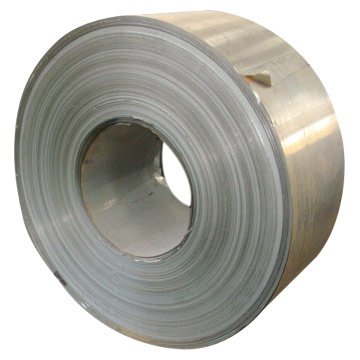
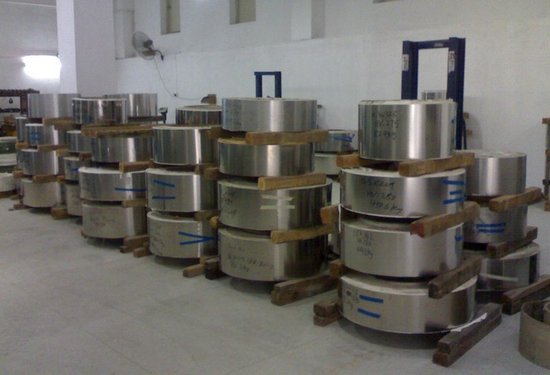
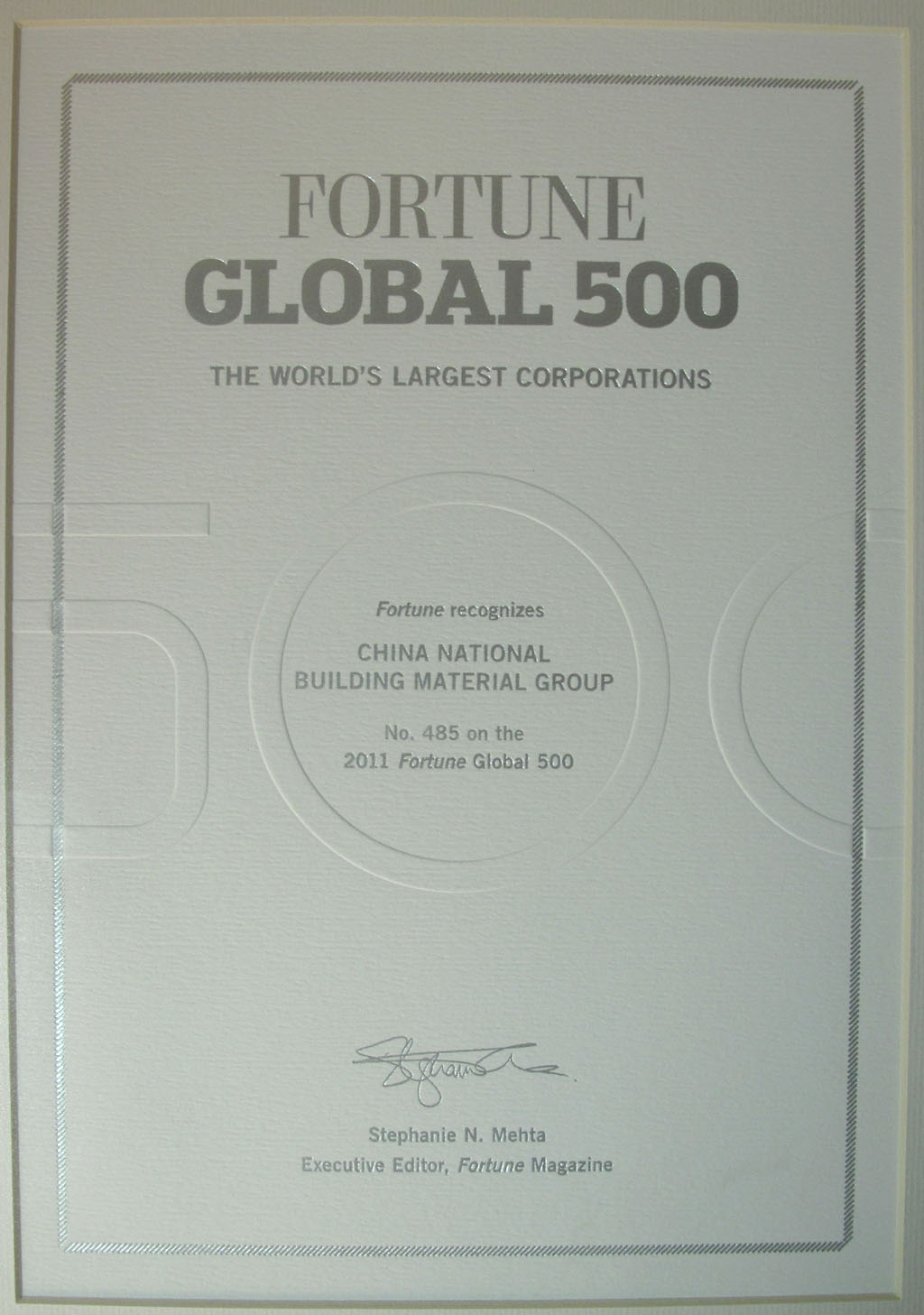
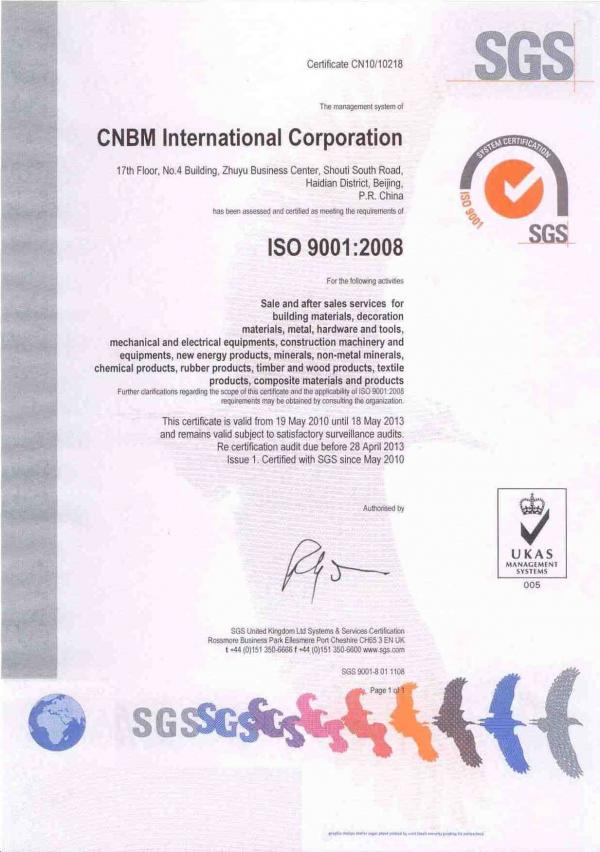
- Q: Is stainless steel wire flexible or rigid?
- Stainless steel wire is flexible to a certain extent, but it is generally more rigid compared to other types of wire. While it can be bent and shaped, it does not have the same level of flexibility as, for example, nylon or copper wire. Stainless steel wire is known for its strength and durability, making it less prone to bending or warping under pressure. However, it is important to note that the flexibility of stainless steel wire can vary depending on its diameter and tempering process. Overall, stainless steel wire strikes a balance between flexibility and rigidity, making it suitable for various applications in industries such as construction, automotive, and medical.
- Q: What are the different types of stainless steel wire electrodes?
- There are several different types of stainless steel wire electrodes that are commonly used in various welding applications. The specific type of stainless steel wire electrode to be used depends on the desired welding characteristics and the intended application. One of the most commonly used types is the ER308L stainless steel wire electrode. This electrode is designed for welding 18% chromium - 8% nickel stainless steels, such as types 301, 302, 304, and 305. It provides excellent resistance to corrosion and is suitable for welding similar or dissimilar stainless steels. Another popular type is the ER309L stainless steel wire electrode. This electrode is specifically designed for welding 300 series stainless steels to carbon or low alloy steels. It provides high strength and good resistance to cracking, making it suitable for applications where joining dissimilar metals is required. For applications involving high-temperature environments, the ER310 stainless steel wire electrode is commonly used. This electrode is designed for welding heat-resistant stainless steels such as types 310, 314, and 446. It offers excellent resistance to scaling and oxidation at elevated temperatures. In addition to the above, there are also stainless steel wire electrodes available for specialized applications. For example, the ER316L stainless steel wire electrode is specifically designed for welding molybdenum-bearing austenitic stainless steels, such as type 316. It provides superior corrosion resistance and is often used in the chemical and petrochemical industries. Overall, the different types of stainless steel wire electrodes offer a range of characteristics and properties that make them suitable for various welding applications. It is important to select the appropriate electrode based on the specific requirements of the project to ensure optimal results.
- Q: Is stainless steel wire resistant to saltwater corrosion?
- Stainless steel wire's resistance to saltwater corrosion is remarkable. Its composition includes alloying elements like chromium, which creates a protective layer on the wire's surface. This shield, called a passive film, acts as a barrier, preventing direct contact between the wire and saltwater and minimizing the chances of corrosion. Moreover, stainless steel wire boasts exceptional strength and durability, making it perfect for saltwater applications like marine structures, coastal installations, fishing gear, and seawater desalination facilities.
- Q: Is stainless steel wire suitable for wire rope end fittings?
- Yes, stainless steel wire is suitable for wire rope end fittings. Stainless steel is known for its excellent corrosion resistance and strength, making it a reliable choice for wire rope end fittings that require durability and longevity.
- Q: Can stainless steel wire be used for springs in the food industry?
- Yes, stainless steel wire can be used for springs in the food industry. Stainless steel is a preferred material in the food industry due to its corrosion resistance, durability, and easy cleanability. It meets the necessary hygiene standards and is safe for food contact applications, making it suitable for use in springs used in food processing equipment or machinery.
- Q: Can stainless steel wire be used for aerospace applications?
- Yes, stainless steel wire can be used for aerospace applications. Stainless steel is known for its corrosion resistance and high strength, making it an ideal material for various aerospace components. It is commonly used in the construction of aircraft structures, engine components, and fasteners. Stainless steel wire is also used in aerospace applications such as wire ropes, cables, and electrical connectors. Its durability and resistance to extreme temperatures make it suitable for the demanding conditions of aerospace environments. Additionally, stainless steel wire can be easily fabricated and has excellent mechanical properties, making it a preferred choice for aerospace engineering.
- Q: What are the different types of stainless steel wire rope coatings available?
- There are several types of coatings available for stainless steel wire ropes, including galvanized, nylon, PVC, and polyurethane. These coatings provide varying levels of protection against corrosion, abrasion, and environmental factors.
- Q: Is stainless steel wire easy to solder?
- No, stainless steel wire is not easy to solder.
- Q: What stainless steel screws are best?
- Other factors, such as weight, price, purchase, and so on, should be considered.This is your professional problem, actually looking for suppliers of enough, you can find detailed Jiajie and building materials to ask, very good.Stainless steel fasteners, the main raw materials are austenitic 302, 304, 316 and low nickel 201 and so on. If the budget is too large, it is recommended to choose 304!
- Q: What's the meaning of the 3 Series 4 series stainless steel wire?
- It's the 304 series304 is a versatile stainless steel which is widely used in the manufacture of equipment and parts requiring good overall performance (corrosion resistance and formability). In order to maintain the inherent corrosion resistance of stainless steel, steel must contain more than 16% chromium, more than 8% of the nickel content. 304 stainless steel is a brand of stainless steel produced according to the ASTM standard in the United states. 304, equivalent to our 06Cr18Ni9 [according to GB/T 20878-2007 has been changed to 06Cr19Ni10] stainless steel.
1. Manufacturer Overview
| Location | Zhejiang, China |
| Year Established | 2005 |
| Annual Output Value | Above US$1.6 million |
| Main Markets | Europe, North America. |
| Company Certifications |
2. Manufacturer Certificates
| a) Certification Name | |
| Range | |
| Reference | |
| Validity Period |
3. Manufacturer Capability
| a) Trade Capacity | |
| Nearest Port | Shanghai |
| Export Percentage | 40% |
| No.of Employees in Trade Department | Above 30 people |
| Language Spoken: | English, Chinese |
| b) Factory Information | |
| Factory Size: | Above 5000 square meter |
| No. of Production Lines | Above 6 |
| Contract Manufacturing | OEM Service Offered |
| Product Price Range | Average |
Send your message to us
SUS304 Stainless Steel Strips
- Loading Port:
- China Main Port
- Payment Terms:
- TT or LC
- Min Order Qty:
- 1 Ton m.t.
- Supply Capability:
- 2000 Tons Per Month m.t./month
OKorder Service Pledge
OKorder Financial Service
Similar products
Hot products
Hot Searches
Related keywords
